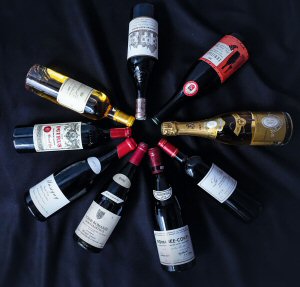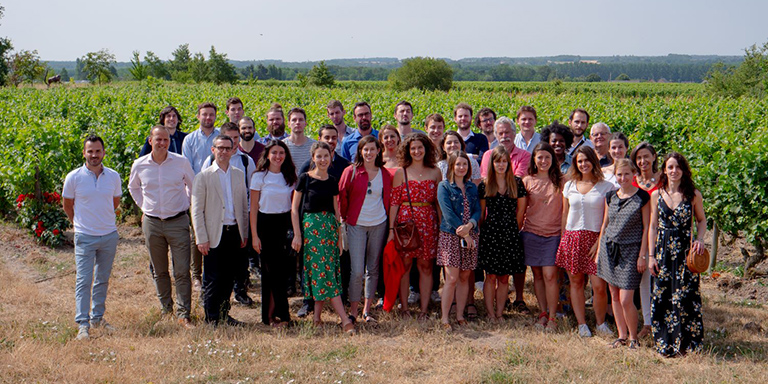
Among the worst losers in the COVID-19 outbreak, the catering sector has suffered as the number of diners and drinkers in restaurants and bars first slumped on contagion fears, then faced restrictions on customer numbers or were shut altogether.Online sales have kept some beverage traders afloat but for those with an already strong e-commerce presence, adapting to changed circumstances has been easier.Paris-based iDealwine, a leading online wine auctioneer in Europe with a regional hub in Hong Kong, said its business operations had been “relatively protected” from the initial impacts of the pandemic.Cyrille Jomand, CEO and co-founder of iDealwine, said 2020 started well with global sales expanding 27% in January and 26% in February, exceeding those two months’ monthly growth witnessed over the past five years. “iDealwine has wide geographical coverage, with buyers in over 60 countries, including areas that hadn’t yet been affected by the pandemic,” he said.The situation changed in mid-March, Mr Jomand said. “Following the lockdown announced in France (which still represents over 50% of the company’s sales), orders suddenly stopped for two days. Sales then progressively resumed as normal, and have continued to increase.”The company’s Hong Kong business was on a similar growth trajectory. “But as Hong Kong was affected by the coronavirus earlier than the rest of the world, we observed the impact of this crisis earlier on,” Mr Jomand said. Sales increased 30% in January 2020 compared to the same month in 2019. “Growth slowed from February onwards, and our 2020 turnover from January to March is equivalent to that of 2019.”
Rapid response

As one of the first French wine e-commerce sites - established in 2000 - iDealwine had the experience to respond quickly to changed buying conditions. “At the outset, the business was created to identify all of the catalogues of wine auctions in France and allow people to bid online, then have the wines delivered to their door, if they won the auction,” Mr Jomand said. “The idea behind iDealwine was that the internet allowed people to bid more easily, without having to physically go somewhere. Over the years, iDealwine developed its own auctions, and stopped featuring other auctions. More than half of the bottles sold at auction in France are now sold by iDealwine.”Being an e-commerce business “is definitely an advantage in the current situation”, he continued. “Most of the world’s wine shops and bars have temporarily closed, whereas our business operations are continuing. Having 20 years of experience in selling wine from a distance has allowed us to efficiently manage our order flows and shipping logistics throughout the world.”On the other hand, he added, being a website also means not having the products to hand.“Our business model is based on sourcing private collectors’ or professionals’ wines/cellars, which we then appraise in our warehouse in Paris,” Mr Jomand said. “Our procedure is, thankfully, flexible enough that we have succeeded in adapting ourselves to the [pandemic] situation within a couple of weeks. For instance, the launch of a drive-through cellar collection service, which eliminates physical contact between employees and clients, means we will be able to continue to run auctions with lots of new wines.“Our warehouse was also very quickly brought up to the standards currently necessary so that our experts can continue working without risk of contamination.”
Price premium
Another change since the COVID-19 lockdown has been evident in buyer behaviour. In France, wine for smaller budgets (between €6 [US$6.40] and €30 [US$32]) has “literally been taken by storm”, up by 20% in one week alone, “reflecting the kind of wine that consumers will be opening during lockdown to enjoy with a simple meal”. In Hong Kong, however, the average bottle price for wines sold on the site has remained stable at €200 (US$215). Wine education demand has increased universally. “Generally speaking, we have noticed that on both our English and French blogs, articles that deal with topics such as food pairings, vinification methods, and guides to regions are having a lot of success,” Mr Jomand said. “We presume that this increased demand for wine education is down to many people having more time on their hands than usual.”iDealwine opened its Hong Kong office in 2013, and credits annual attendance at the HKTDC Hong Kong International Wine & Spirits Fair, organised by the Hong Kong Trade Development Council and held in November each year, with boosting its pan-Asia presence.“Having an office in Hong Kong has allowed us to develop extensively in Asia. The Asian market now represents an annual turnover of €5 million [at iDealwine], representing 15% of our annual turnover,” Mr Jomand said.“There are several advantages to having a physical office, including having improved knowledge of the market, closer communication with our clients and having better control of the supply chain.”
Related link
Ideal Wine

